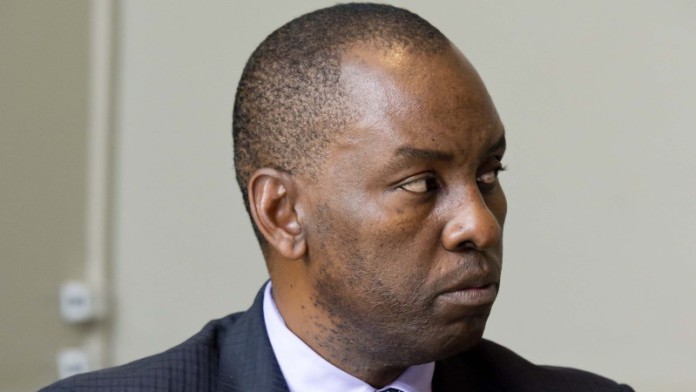
THE redrafted mining charter will not recognise past empowerment deals and has given the mining sector a year to comply with a new ownership target of 30% from 26% currently at the point of effectiveness of the document.
“The Mining Charter becomes effective as we present it,” said Mines Minister, Mosebenzi Zwane at a presentation in Pretoria today. “Those companies who do not have 26% as we speak, we need to empower from the percentage from where they are.”
Of this new target, the minister set down specifics on how it should be constituted with 8% of the ‘mining right’, as the ownership target is described, owned by employees; 8% by mine communities and 14% by black entrepreneurs.
He said that companies complying to a 30% target did not need to restructure their empowerment transactions, but it would appear that non-compliant companies will be asked to significantly re-engineer their agreements.
Mining shares listed on the Johannesburg Stock Exchange were in the red minutes after news of the redrafted Mining Charter was made public. Gold shares were 5% weaker while the resources index was about 1.75% down.
“Mining shares on JSE plunging on Mining Charter,” said David Shapiro, a stockbroker at Sasfin Securities in a tweet. “Another example of government putting ideology (read greed) ahead of jobs and growth,” he said.
In addition to the fresh ownership target, the Mining Charter also imposes higher targets on procurement, employment equity and ownership of prospecting rights which must be 50% and one share black-owned and include voting rights.
A new element in the Mining Charter, and which is likely to extract howls of protest from the sector, is a proposal that rightholders of mineral rights must pay 1% of annual turnover to the 30% BEE partner prior to any distributions, such as dividends, to its shareholders.
The controversial Mining Transformation and Development Agency (MTDA) also takes its place in the charter, a tax collection entity that will redistribute a portion of the funds the mining sector already makes in terms of a levy towards human resource and skills development.
“The MTDA is in the Mining Charter because we are talking about communities. The government, among many other things, has to ensure community development,” said Zwane to media today.
The agency, the oversight of which is still unknown, will collect 2% of the 5% investment made by the mining sector in skills development while a further 2% of the levy will go to essential skills development activities such as artisanal training, bursaries and the like.
“The Charter has been gazetted. It will be ready in the afternoon. The button has already been pressed,” said Zwane who added that a MIGDETT meeting, boycotted by the Chamber of Mines this morning, was meant as “a courtesy”.
“I did not call any stakeholder meeting, but I called for a MIGDETT meeting so the parties could get the charter straight from me. I was not seeking to obtain any decision. I didn’t want them to get the charter from the media,” he said.
The Chamber objected to the eleventh hour MIGDETT meeting saying it would not be co-opted by the DMR and styled the appointment as “suspicious”.
MIGDETT is an acronym for the Mining Industry Growth Development and Employment Task Team, a forum long established by industry, unions and government representatives. MIGDETT was the platform used to negotiate the charter’s last iteration.
“The Chamber will not be attending the MIGDETT meeting tomorrow,” it said in a statement last night (June 14). “Its office bearers will not be co-opted into participating in an attempt by the DMR to provide any support into what we believe has been a flawed process by the DMR,” it said.
“Where there are challenges, we are more than welcome to engage and change the landscape of economy in this country,” said Zwane. “The issue of first and second economy cannot be left unattended,” he said.
In this sector, we must sure the people of this country get to a level where economy is shared among everyone and this charter seeks to achieve this,” he added.
The Mining Charter will ask mining companies to make 50% of their boards to have black representation of which 25% must be black females. Similarly, executive committee level employment should be 50% black represented. At junior employment level some 88% of all appointments must be black people of which 44% must be black women.
In respect of procurement, some 70% of all mining goods and 80% of mining services must be bought from black-owned companies while all mineral analysis needs to be conducted by black-controlled companies.
BENEFICIATION
Zwane said that a maximum offsetting of some 11% against a BEE shareholding will be applied provided a number of strictures related to beneficiation. The beneficiation must also be still in existence.
These include that the company requesting the offset proving it had been invested in beneficiation since 2004 and that the beneficiation must be in line with the definition of beneficiation as contained in the Minerals & Petroleum Resources Development Act (MPRDA).










